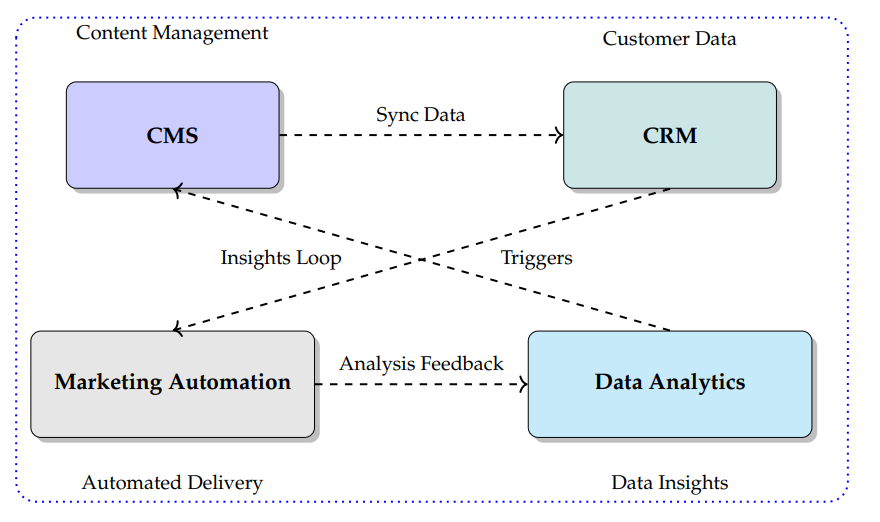Strategic Integration of Content Analytics in Content Marketing to Enhance Data-Informed Decision Making and Campaign Effectiveness
Keywords:
content analytics, content marketing, data-driven strategy, engagement metrics, machine learning, predictive analytics, sentiment analysisAbstract
Content analytics is transforming content marketing by enabling data-informed strategies that better align with audience engagement patterns and campaign objectives. This paper proposes a structured framework for embedding content analytics into content marketing practices to drive optimized decision-making and improve campaign outcomes. The framework centers around three key components: systematic data collection, efficient data processing, and insights integration, aiming to refine how content performance is assessed and leveraged to enhance marketing efficacy. Data collection within this framework focuses on capturing relevant engagement metrics and contextual variables from multiple channels, ensuring a comprehensive view of audience interactions. Data is gathered in a structured manner from digital touchpoints, enabling consistent tracking of user actions, audience demographics, and context-specific factors such as device type and source platform. Once collected, data undergoes advanced processing that employs machine learning (ML) algorithms for predictive analysis and natural language processing (NLP) techniques for sentiment and content analysis, providing actionable insights into user preferences and engagement trends. The framework’s insights integration component aims to make content marketing more agile by enabling real-time adjustments to campaign strategies based on dynamic audience feedback. Through predictive analytics, it anticipates audience responses, optimizing content distribution and personalizing audience interactions to foster engagement. Furthermore, the framework supports effective resource allocation, guiding marketers toward high-impact strategies. By utilizing data-driven insights, content creators can refine content relevance and resonance with target audiences, enhancing the overall impact of marketing efforts. This framework offers practical utility for researchers and practitioners by formalizing the process of integrating analytics into content marketing workflows. The data-informed approach presented here is designed to improve audience targeting and resource efficiency while allowing for continual strategy optimization. This work contributes a robust structure to guide content marketing teams toward measurable, data-backed improvements in campaign performance.

Downloads
Published
How to Cite
Issue
Section
License
CC Attribution-NonCommercial-ShareAlike 4.0



